Sustainable agriculture is an approach that seeks to meet the food needs of the current population without compromising the resources required to produce food for future generations. This model is based on practices that are economically viable, environmentally responsible, and socially equitable. In a world where the population is growing and natural resources are becoming increasingly scarce, sustainable agriculture presents a possible solution to global challenges.

Principles of Sustainable Agriculture
Sustainable agriculture is based on several key principles:
- Resource Conservation: Promotes the efficient and responsible use of natural resources, minimizes the use of chemical inputs, and fosters biodiversity.
- Soil Health: Enhances soil health by using techniques like crop rotation, organic fertilization, and soil cover to prevent erosion and promote beneficial soil microorganisms.
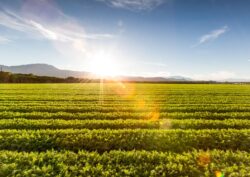
- Carbon Footprint Reduction: Adopts clean technologies and carbon-capturing practices, reducing greenhouse gas emissions.
- Crop Diversification: Promotes a variety of crops instead of monoculture, improving the resilience of agricultural systems and reducing pest and disease problems.
- Social Responsibility: Promotes fair working conditions and ensures the well-being of farming communities, improving access to healthy food.
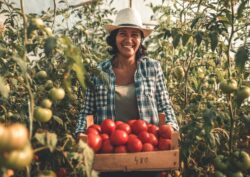
Sustainable Agriculture Practices
Sustainable agriculture can be implemented through various practices:
- Organic Farming: Avoids synthetic pesticides and fertilizers, opting for natural methods such as composting and biological pest control. This not only improves soil health but also produces chemical-free food, benefiting consumers.
- Agroforestry: Combines agriculture with forestry, integrating trees and shrubs into farmland. This increases biodiversity, improves water retention, reduces soil erosion, and provides shade and habitats for wildlife.
- Cover Cropping: Involves planting crops between main crops to protect the soil from erosion and improve its quality. These crops help fix nitrogen in the soil, improve soil structure, and prevent weed growth.
- Conservation Agriculture: Focuses on minimizing soil disturbance, maintaining permanent ground cover, and crop rotation. This practice helps conserve soil moisture, reduce erosion, and improve ecosystem health.
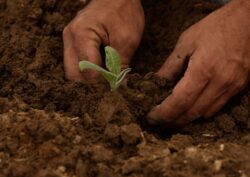
- Efficient Water Use: Promotes irrigation techniques that minimize water waste, such as drip irrigation and rainwater harvesting. These practices are essential in areas where water is a limited resource.
- Agroecological Pest Management: Uses principles and practices from agroecology to control and prevent pests and diseases in crops. Unlike conventional methods, which often rely on chemical pesticides, this approach aims to promote ecosystem health and reduce environmental and social impacts by using alternatives like biological control, cultural practices, physical barriers, organic biorepellents, and integrated pest management.
Benefits of Sustainable Agriculture
The transition to sustainable agriculture offers multiple benefits:
- Food Security: By promoting crop diversification and local production, sustainable agriculture contributes to food security by reducing dependence on imports and improving access to fresh, healthy food.
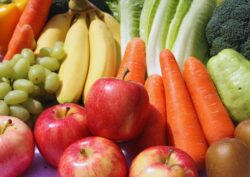
- Environmental Protection: Reduces water and soil pollution by minimizing the use of synthetic pesticides and fertilizers. Additionally, the conservation of biodiversity and natural habitats helps maintain ecological balance.
- Economic Resilience: Farmers who adopt sustainable practices often find that their long-term costs are lower because they rely on less expensive inputs. Additionally, organic production can command higher prices in the market.
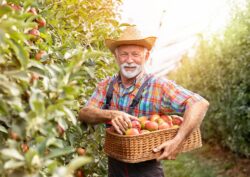
Looking Forward: The Future of Sustainable Agriculture
Despite its benefits, sustainable agriculture faces significant challenges. Lack of access to financing, urbanization, depleted soils, scarcity of resources, resistance to change by some farmers, and the pressures of industrial agriculture are some of the obstacles that need to be overcome. However, growing public awareness of the importance of sustainability and demand for organic products are driving change within the agricultural industry.
Innovation and Technology: Tools like drones, soil sensors, and data analytics allow for optimized production and better decision-making.
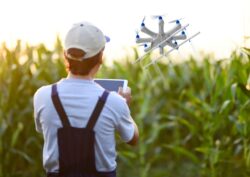
Education and Awareness: Educating about sustainable agriculture is crucial. From schools to local communities, it’s essential to raise awareness about the benefits of this approach and how each of us can contribute, whether by supporting local farmers, choosing sustainable products, or learning how to grow our own food.
Sustainable agriculture is more than just a trend; it is an urgent necessity in a world facing unprecedented environmental and social challenges. By adopting practices that respect and conserve our environment, we not only ensure food production for future generations but also promote a fairer and more just world. The transition to a sustainable agricultural model is a path that we must travel together as a society to ensure a viable future for our planet and its inhabitants.

